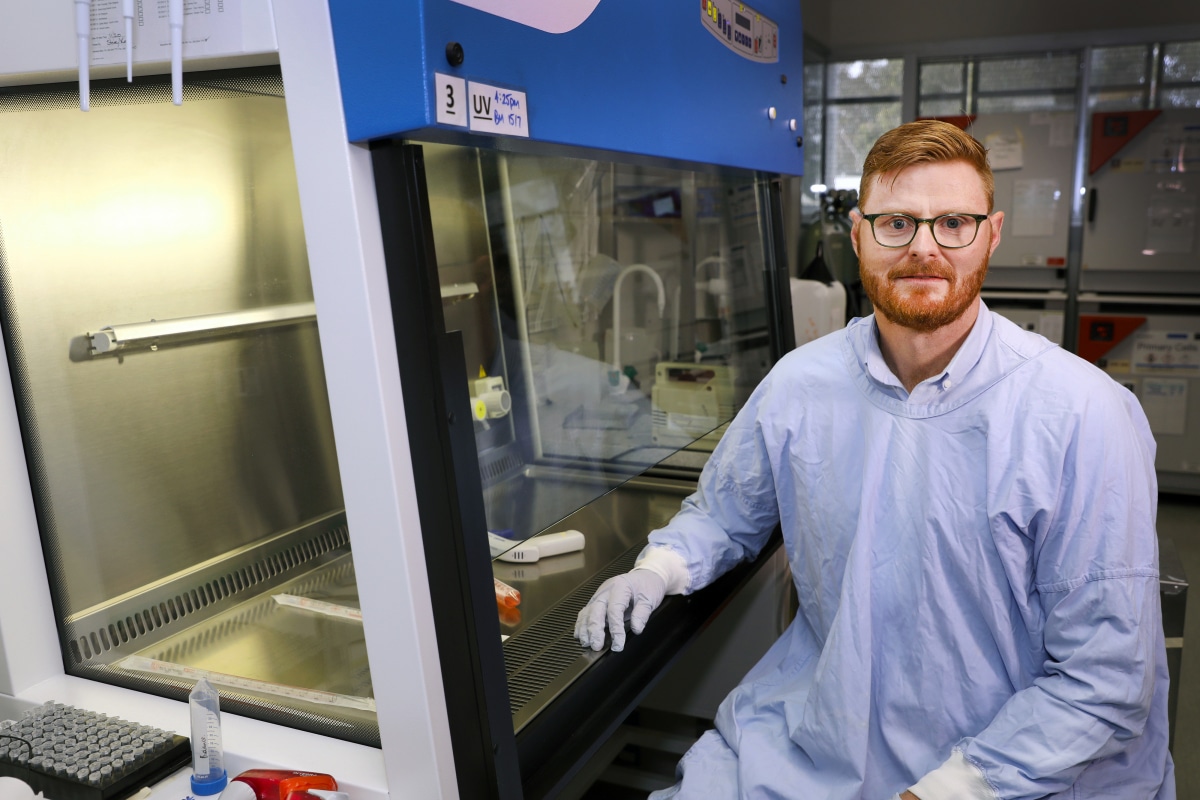
For the first time, families of children suffering the worst type of children’s cancer will now have drug combination options with the announcement of a new clinical trial based on Australian research.https://hmri.org.au/researchers/matt-dun

For the first time, families of children suffering the worst type of children’s cancer will now have drug combination options with the announcement of a new clinical trial based on Australian research.
Work by a leading Australian research team, led by Associate Professor Matt Dun, to develop treatments for the most aggressive form of childhood brain cancer has led to the development of a new global study in the disease.
Associate Professor Dun – a cancer researcher – began his work in Diffuse Intrinsic Pontine Glioma (DIPG) after his daughter, Josie was sadly diagnosed with the disease in February 2018, and is now leading the scientific arm that has developed treatment strategies combining targeted therapies for this most deadly childhood cancer.
The study, with the US-based Pacific Pediatric Neuro-Oncology Consortium (PNOC) and initially based in the US, will look at multiple combinations therapies for the disease and other diffuse midline gliomas, including one drug being developed by Australian biotech, Kazia Therapeutics – paxalisib – which Associate Professor Dun has used extensively in his research.
Work by Associate Professor Dun and his colleagues has extensively informed the design of the study, in particular by research undertaken at the University of Newcastle and Hunter Medical Research Institute (HMRI). The HMRI team has conducted laboratory research with paxalisib for several years and has generated a powerful body of data combining paxalisib with other investigational drugs.
This research has also been partly funded by the National Health and Medical Research Council, RUN DIPG, a not-for-profit organisation led by Associate Professor Dun, the DIPG Collaborative, Defeat DIPG Michael Moiser Foundation and the McDonald Jones Foundation.
“All children and young adults with DIPG and diffuse midline gliomas (DMG) are diagnosed at advanced stages when the tumour is extremely aggressive and complex,” Associate Professor Dun said.
“Unfortunately, this means we are unlikely to improve outcomes using a single drug approach. DMG-ACT, is an adaptive combination therapy clinical trial that combines drugs which have shown safety in clinical trials for DIPG and other brain cancers as single therapies.”
“Work from my laboratory and from others internationally using a range of DIPG preclinical models shows that the combination of paxalisib and another drug ONC201 that is owned by an American Biotech company, Oncoceutics, synergistically improves response compared to either drug used in isolation.”
“Several children worldwide have now received the combination even at very advanced stages, showing preliminary safety and efficacy. While it is early days, it is exciting to see the emergence of new treatment strategies for a disease which until now clinicians have had very limited options.”
These findings are currently under international peer review.”
It is expected that the PNOC study will initially open in the United States in 1H CY2021, with expansion to other countries taking place in CY2021. Discussions are ongoing regarding the potential inclusion of Australian sites in the study.